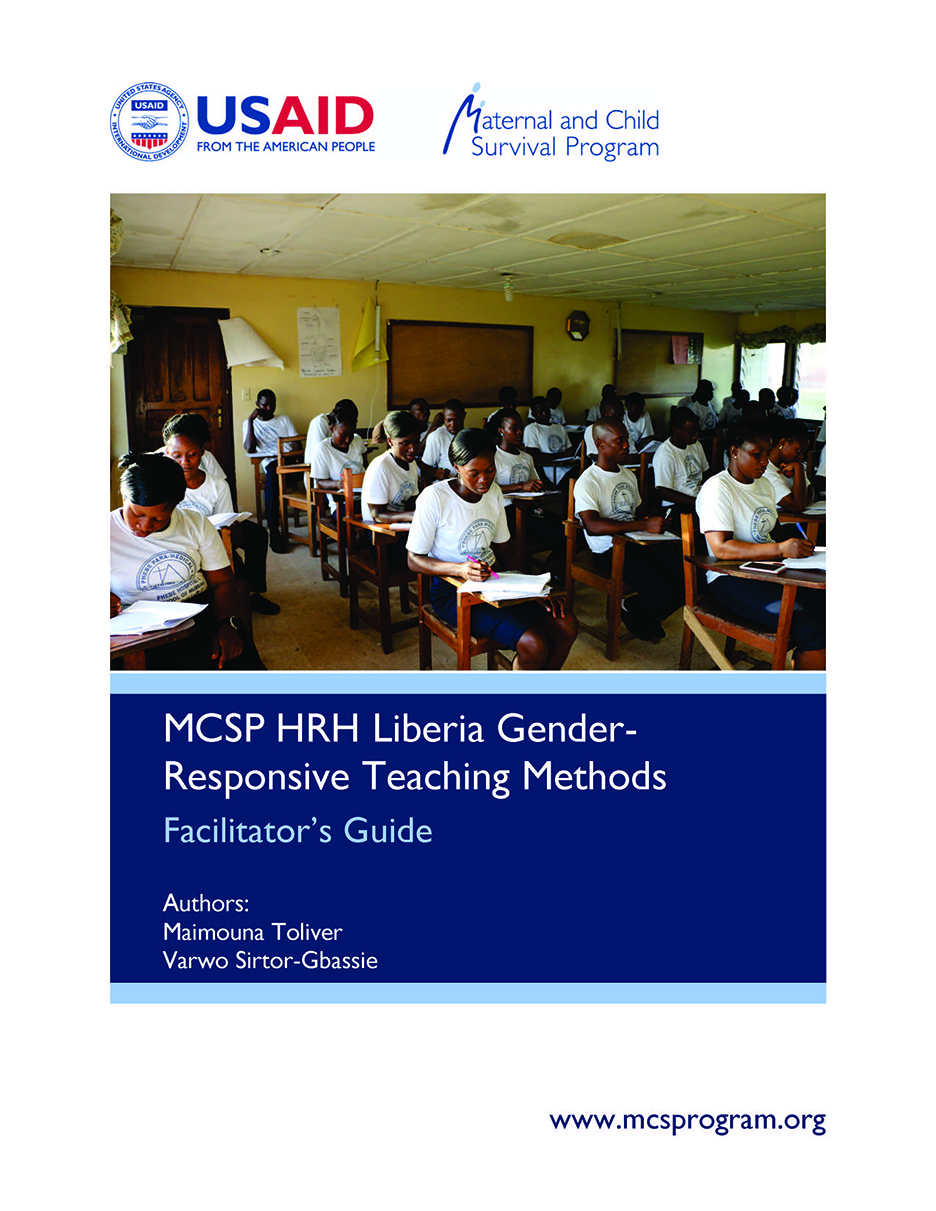Publish Date: September 2018
Author: MCSP
USAID’s MCSP/Human Resources for Health project in Liberia, aims to improve health workforce readiness by increasing the quality of instruction at pre-service training institutions and by strengthening the learning environment at pre-service training institutions and clinical/practicum teaching sites. A key component of these efforts is to improve retention of female students by promoting gender-responsive teaching skills and gender-sensitive teaching environments, through skills training of faculty and preceptors on gender-responsive teaching methods.
The Gender-Responsive Teaching Methods Package helps instructors understand and address gender and its impacts on learning. The package also includes PowerPoints on Gender Promotion at the Institutional Level and Introduction to Gender-Responsive Teaching Methods.
Key strategies for addressing gender in health institutions include:
- Creating an encouraging environment for female students to participate and speak in class more often;
- Ensuring the institution has a sexual harassment policy in place;
- Putting in place safety mechanisms to protect female students (e.g., transport late at night);
- Ensuring that classrooms, lesson plans, and course materials are free of gender stereotyping and bullying language;
- Ensuring a gender balance in instructors and the institutions’ leadership;
- Addressing the needs of vulnerable students (e.g., providing scholarships or small stipends to students in need);
- Monitoring gender-disaggregated enrollment, retention, and performance data;
- Rewarding students who have made the most progress over time;
- Encouraging male students to challenge harmful gender norms and behaviors and to support female students to excel.
MCSP HRH Liberia Gender-Responsive Teaching Methods: Facilitator’s Guide (3234 downloads )

